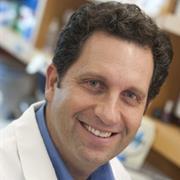BU, Boston Medical Center Researchers Join Forces with GSK to Fight Lung Diseases
Researchers from the Center for Regenerative Medicine (CReM) at Boston University and Boston Medical Center (BMC) have announced a new collaboration with the global biopharma company GSK to advance innovative research focused on developing cutting-edge models to study and treat lung diseases like pulmonary fibrosis.
Pulmonary fibrosis, including its most common form, idiopathic pulmonary fibrosis (IPF), is a progressive and life-threatening condition that results in scarring of the lungs, making it increasingly difficult for patients to breathe. While the causes of this disease are complex and not fully understood, lung epithelial cells—specifically those lining the tiny air sacs where oxygen exchange occurs—have been found to play a central role in its development.
Together with GSK, the Boston-based research team will focus on understanding how dysfunctional lung epithelial cells initiate and perpetuate the disease, including alveolar type 2 (AT2) cells, which are responsible for maintaining the lung’s delicate architecture.
“Genetic disruptions along with environmental factors can lead to stressed or dysfunctional epithelial cells, which initiate a cascade of signaling across immune cells and fibroblasts, ultimately leading to lung scarring. Identifying novel targets with high translational confidence therefore requires a deep understanding of the genetic and cellular basis of disease,” said Kaivan Khavandi, MD, PhD, SVP & Global Head of Respiratory/Immunology R&D at GSK. “By working together to establish this scientific discovery collaboration, we will combine state-of-the-art translational models at the CReM, with extensive multi-omic capabilities at GSK, to advance our understanding of the causal biology of fibrotic lung disease and accelerate the discovery of more effective treatments – which are so desperately needed in this area of respiratory medicine.”
In addition to focusing on epithelial cells, the research will take an innovative step forward by developing next-generation in vitro models that combine lung epithelial cells with stem cell-derived mesenchymal cells.
These advanced co-culture models will mimic the complex interactions between different cell types in the lung, providing a more realistic system for studying how pulmonary fibrosis develops. This approach will also enable scientists to identify and develop new drug targets to halt or slow the progression of the disease in a setting that closely resembles the human lung environment. The insights gained from this research could accelerate the development of more effective treatments for patients suffering from IPF and other forms of lung disease, potentially leading to life-saving therapies for all patients.
 CREM Director Darrell Kotton, MD.
CREM Director Darrell Kotton, MD.
“Studying the crosstalk of lung epithelial and mesenchymal lineages using patient-derived stem cell and organoid-based model systems represents an exciting new direction for the field,” said Darrell Kotton, MD, director of the CReM, pulmonologist at BMC, and the David C. Seldin Professor of Medicine at Boston University Chobanian & Avedisian School of Medicine.
 Kostas Alysandratos, MD, PhD
Kostas Alysandratos, MD, PhD
![]()
The new collaboration is expected to create a platform that will not only potentially advance the study of lung diseases but also enhance drug development efforts, offering hope to the many patients affected by these conditions. “Through this collaboration, we are poised to make significant advances in understanding the molecular mechanisms behind pulmonary fibrosis, which could ultimately transform how we treat these devastating diseases,” adds Kostas Alysandratos, MD, PhD, assistant professor of medicine at the school who is an investigator on the proposal and co-directs the Interstitial Lung Disease Clinic at BMC.
 Megan Bair-Merritt, MD, MSCE, Chief Scientific Officer at BMC
Megan Bair-Merritt, MD, MSCE, Chief Scientific Officer at BMC
“At BMC, we are committed to conducting high-quality interdisciplinary research that is grounded in equity. 70% of our patient population identify as being people of color, and data suggest that Black patientswith pulmonary fibrosis have worse health outcomes at younger ages compared to Hispanic or white patients. The collaboration with GSK will inform the development of new treatments for lung diseases that help address these disparities and pave the way for a healthier future for everyone,” says Megan Bair-Merritt, MD, MSCE, Chief Scientific Officer at BMC and professor of pediatrics at the school.